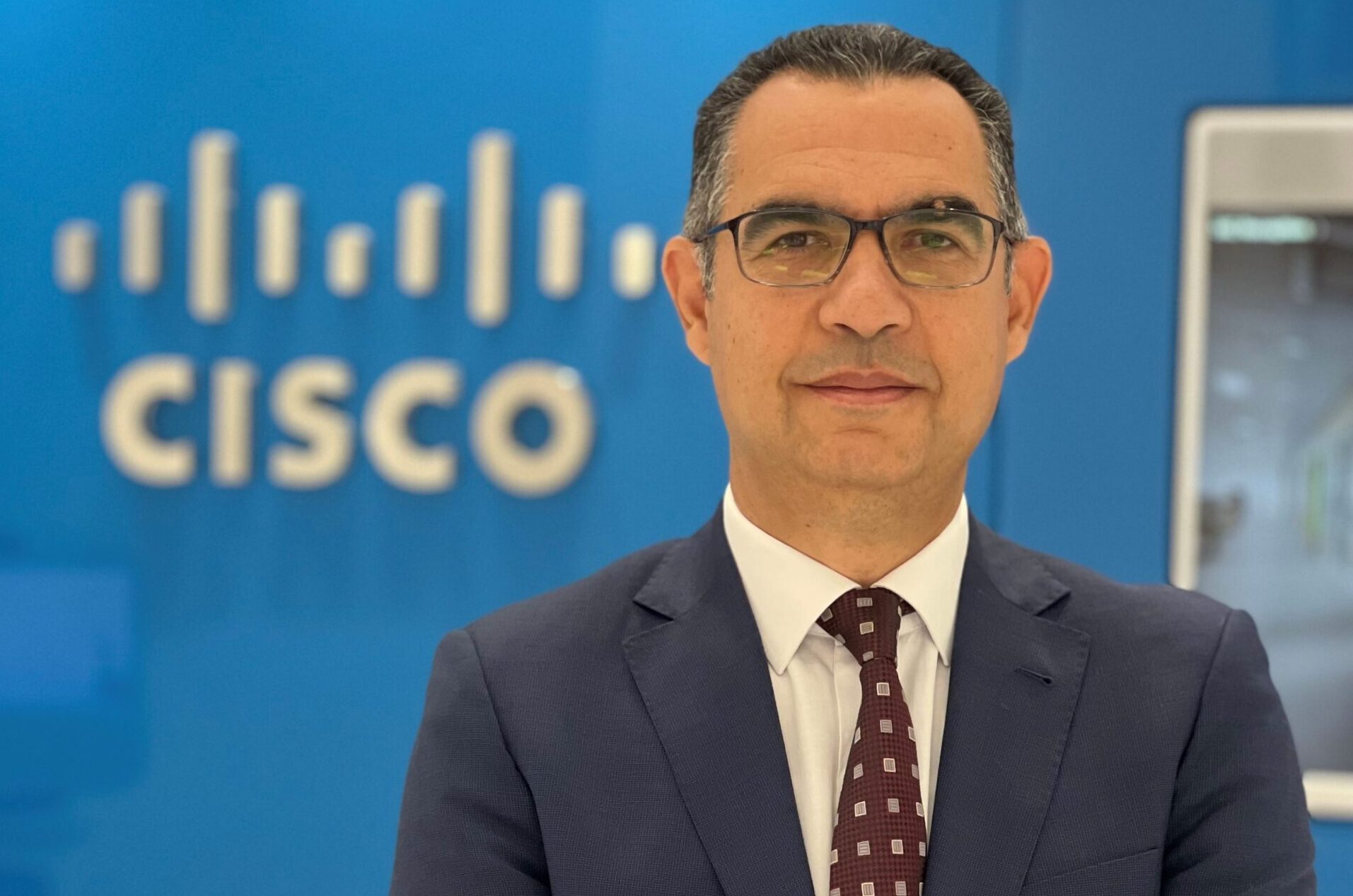Abdelilah Nejjari, Managing Director – Gulf, Cisco MEA, discusses the company’s focus on AI-powered networks, digital resilience, and preparing a future-ready workforce in the Middle East
What is Cisco highlighting at GITEX GLOBAL 2024?
This year, our priorities are very much aligned with our customers’ needs. AI is, of course, a major focus for everyone, especially in this region. Our theme this year is “We Make AI Work for You,” and I believe that perfectly captures our focus for the event.
This being said, our main objective is enabling AI-powered networks and infrastructure. We’re focused on ensuring that our infrastructure is AI-ready.
The second priority is future-proofing workspaces and workplaces, something that has been a key topic in our conversations with customers. Finally, we’re focusing on digital resilience, which has become increasingly important after recent global cybersecurity events. We’ve made significant advancements in this area, especially with the acquisition of Splunk in March, which has positioned us well to address these concerns.
At the event, we’re showcasing these priorities through a range of demos, with support from many of our partners. Our cutting-edge technologies will help customers tackle these key challenges.
Cisco announced plans to launch Cisco Duo earlier this year. Can you tell us more about this, and how it aligns with your focus on data sovereignty and supporting the UAE’s goals?
With the launch of Cisco Duo and our investment in a point of presence here in the UAE, we’re addressing several factors. One key consideration is performance, particularly when it comes to reducing network latency. Another critical factor is meeting local regulatory requirements, particularly around data sovereignty.
We recently launched a cloud data centre in the UAE as part of our global strategy, integrating Duo to strengthen security infrastructure. Duo is part of our zero-trust platform, and by establishing a local presence, we’re able to serve our customers here more effectively. This point of presence not only benefits customers in the UAE but also improves performance across the wider Middle East.
AI is clearly a major focus for Cisco. Many government organisations and private firms in the region are also prioritising AI, but talent remains a significant challenge. How is Cisco helping to ensure a future-ready workforce?
AI presents immense opportunities, but it also comes with challenges, and talent is one of the most critical ones. To successfully navigate the AI revolution, companies need to invest in upskilling their workforce and creating new opportunities.
Cisco recently published an AI Readiness Index, which showed that over 71 percent of organisations in the UAE are planning to invest in developing their talent. At Cisco, we are actively involved in this space through collaborations with both the public and private sectors. Our flagship training programme, Cisco Networking Academy, has been central to these efforts.
The Networking Academy, which has been running since 1999, is an IT skills-to-job program. In the UAE, we’ve trained over 121,000 learners, with 64 percent of them being female. This is something we’re incredibly proud of. Across the wider region, we’ve trained over 400,000 learners. Recently, we’ve updated the program to include AI skills, ensuring that the workforce is prepared for the demands of the AI era.
The fact that 64 percent of your trainees in the UAE are female is impressive. Was this a deliberate effort to attract more women, or is it a reflection of increasing interest from female students?
It’s a combination of both. We’ve made a conscious effort to encourage more women to join the program. We partner with universities, educational institutions, and public sector organisations to provide our training platform. Through these partnerships, we train the trainers and offer the platform for free, allowing us to recruit and certify trainees.
As part of this initiative, we actively encourage young women and girls to explore careers in STEM (Science, Technology, Engineering, and Mathematics). This approach has been particularly successful here in the UAE, and we’re very pleased with the results.
Cisco recently completed its acquisition of Splunk. How does this strengthen Cisco’s cybersecurity capabilities, both globally and in the region? What can customers expect from this integration?
We completed the acquisition of Splunk earlier this year, and this merger presents significant opportunities in both cybersecurity and observability, particularly in the context of AI.
Before the acquisition, Cisco was already a leader in providing the infrastructure necessary for digitalisation and AI. Now, with Splunk, we’re able to address one of the key priorities I mentioned earlier: digital resilience. Splunk brings an advanced data platform that’s essential for AI. You cannot have a strong AI strategy without a robust data foundation, and Splunk delivers that along with powerful data processing and analytics capabilities.
By combining Splunk’s strengths with Cisco’s existing infrastructure—networking, data centres, and more—we’re now in a position to offer unparalleled data insights and AI capabilities. From a regional perspective, our teams are already working together, and Splunk is also present at this event. Customers can expect a highly competitive AI offering as a result of this integration, and we’re already engaging with them on their journeys.
What does Cisco hope to achieve at GITEX GLOBAL 2024?
GITEX GLOBAL has always been key event for us. Every year, we’re impressed by how DWTC and the Dubai government put it together.
For Cisco, it’s an opportunity to showcase our innovations and have meaningful discussions with customers about their strategies, whether it’s around AI, digital acceleration, or cybersecurity. By the end of the event, we hope to strengthen our partnerships and position ourselves as a key player in helping customers with AI, cybersecurity, and digital resilience.










Discussion about this post